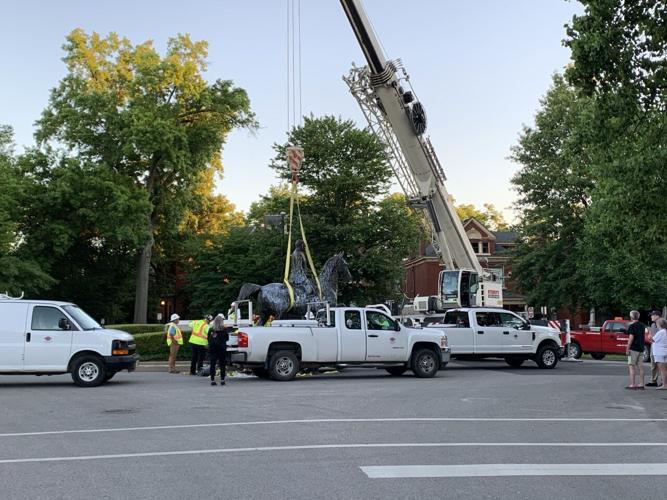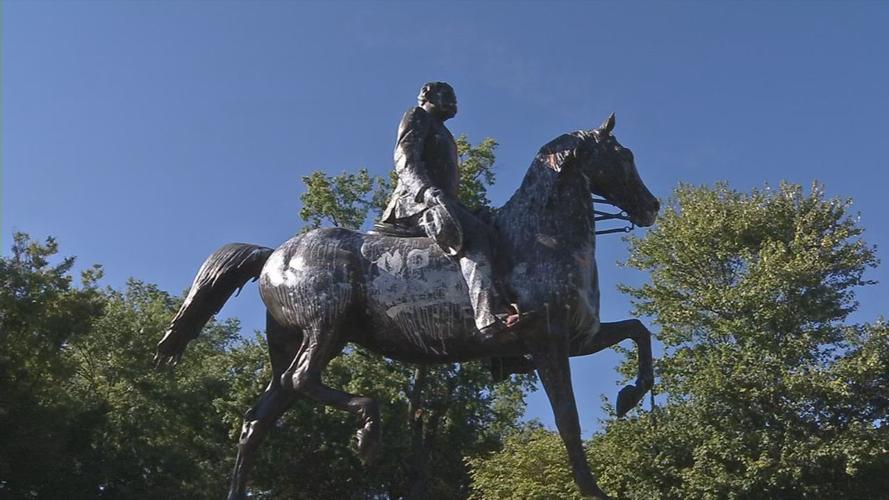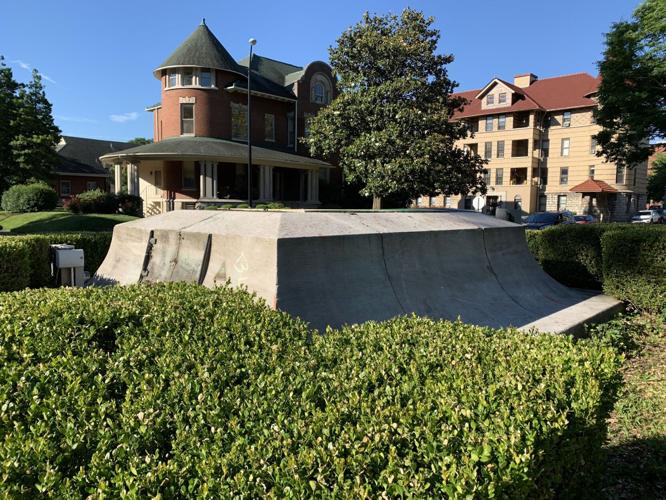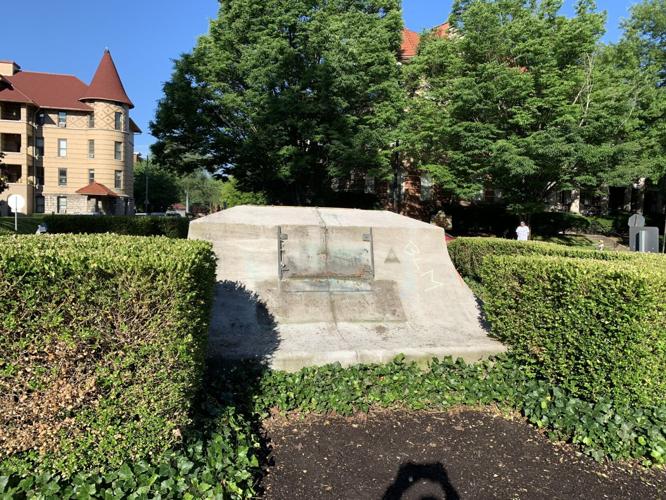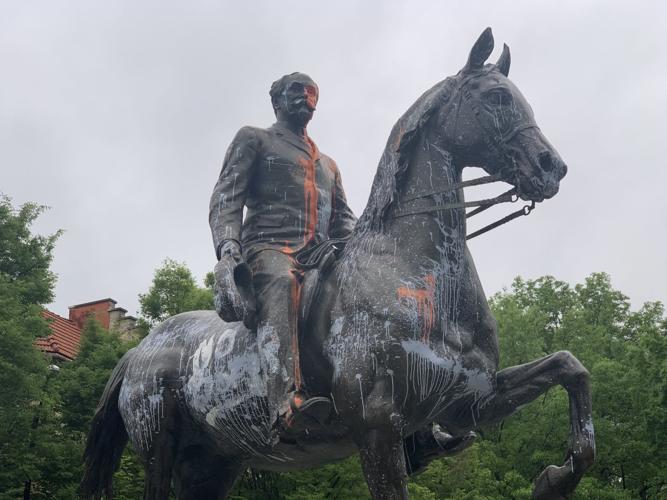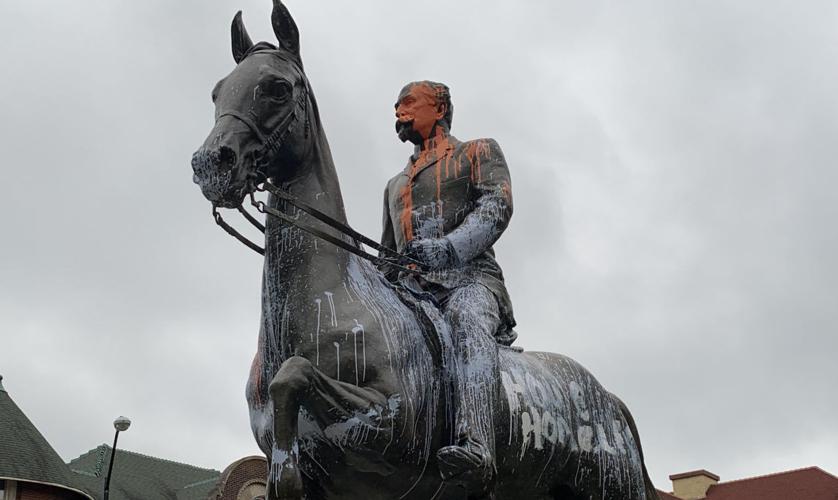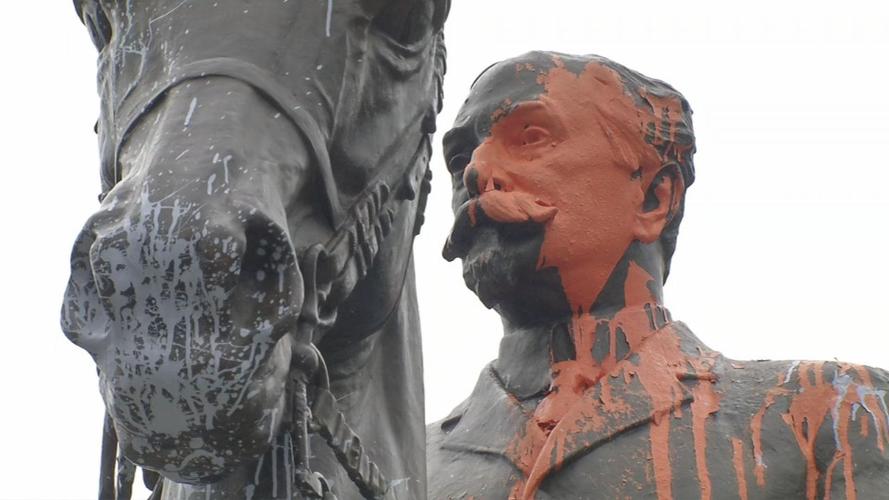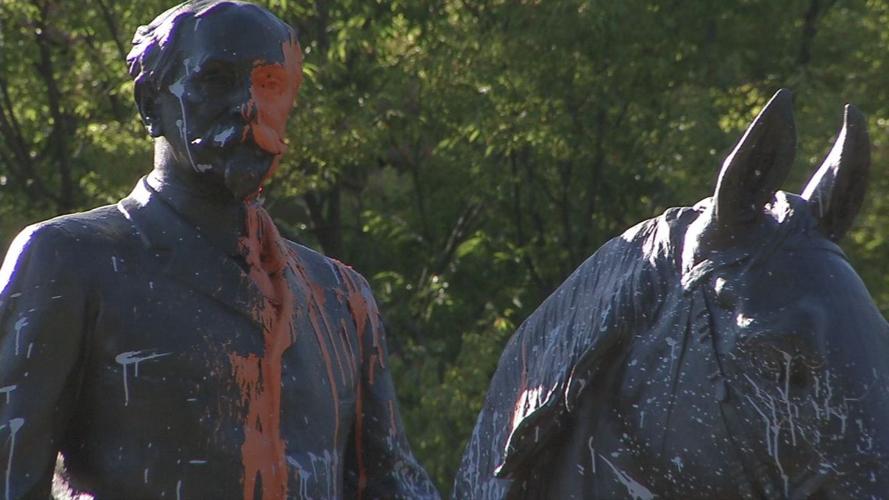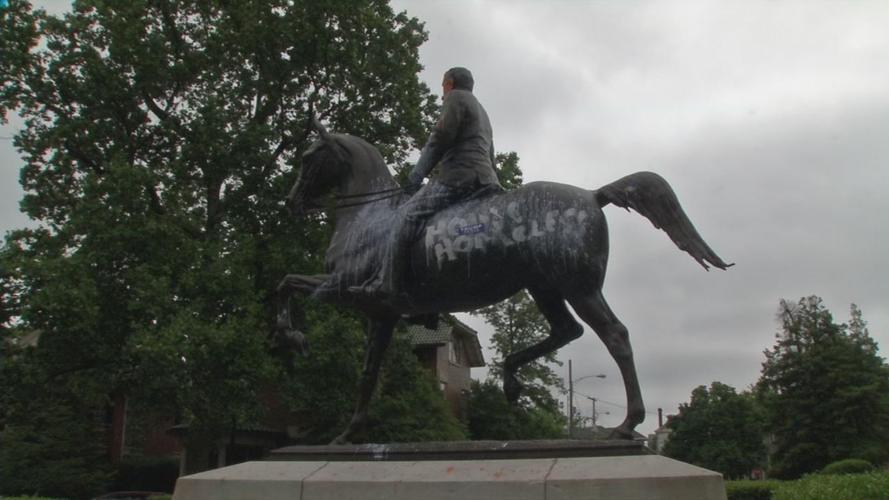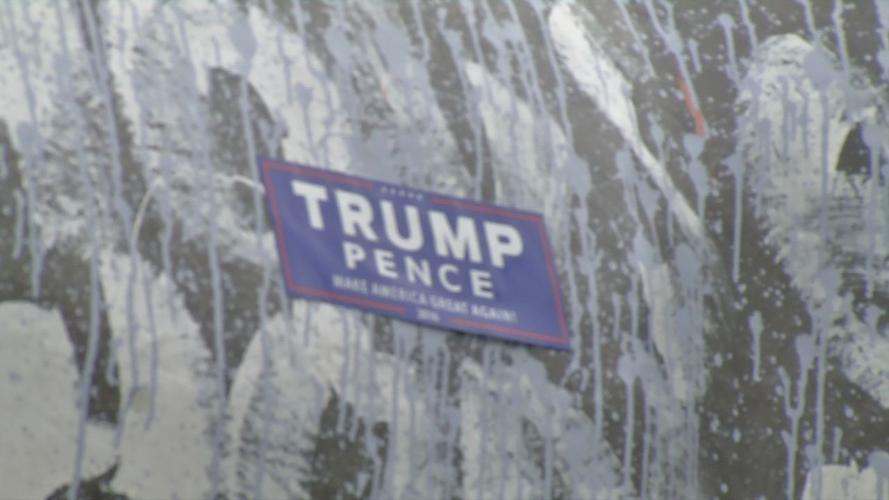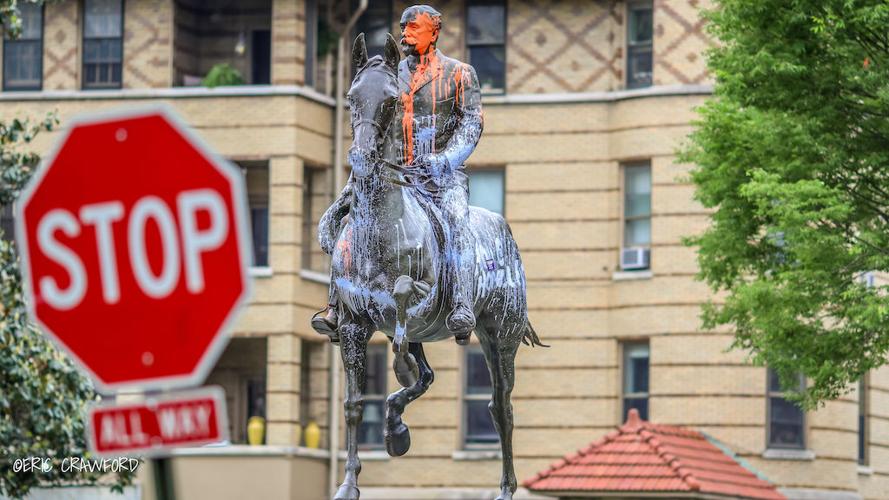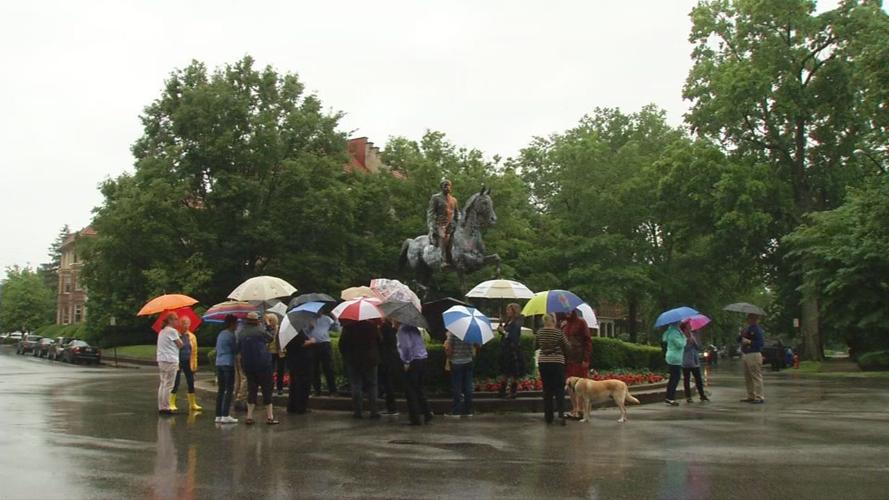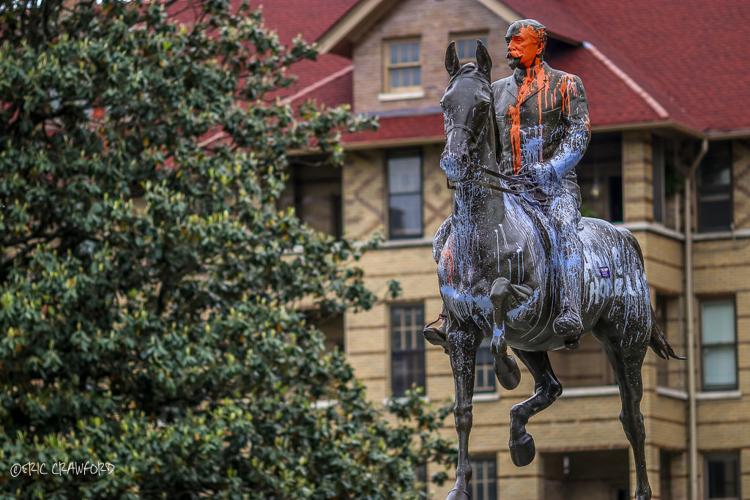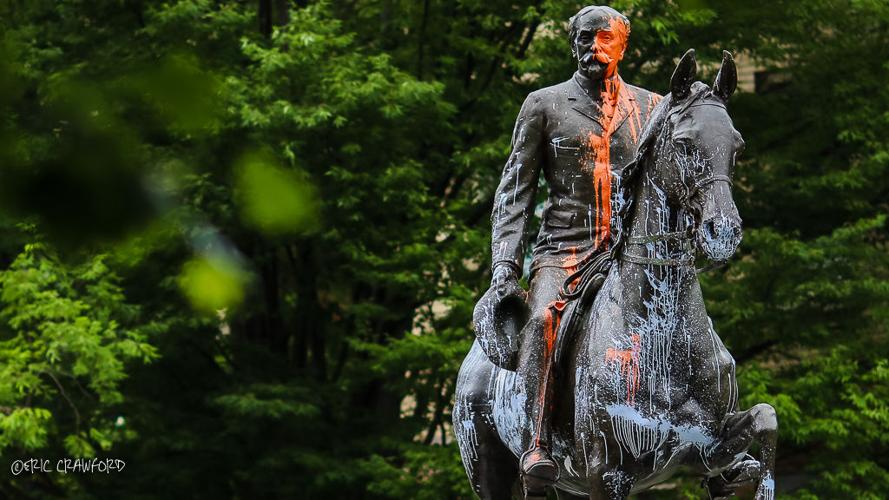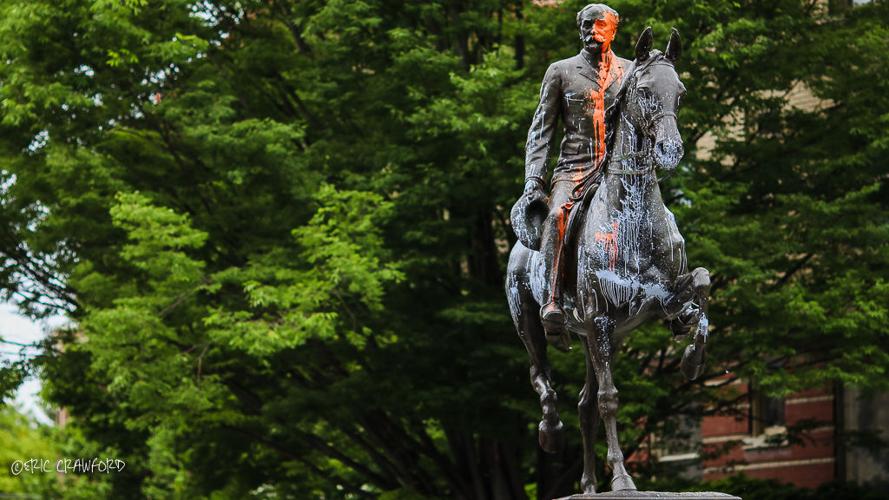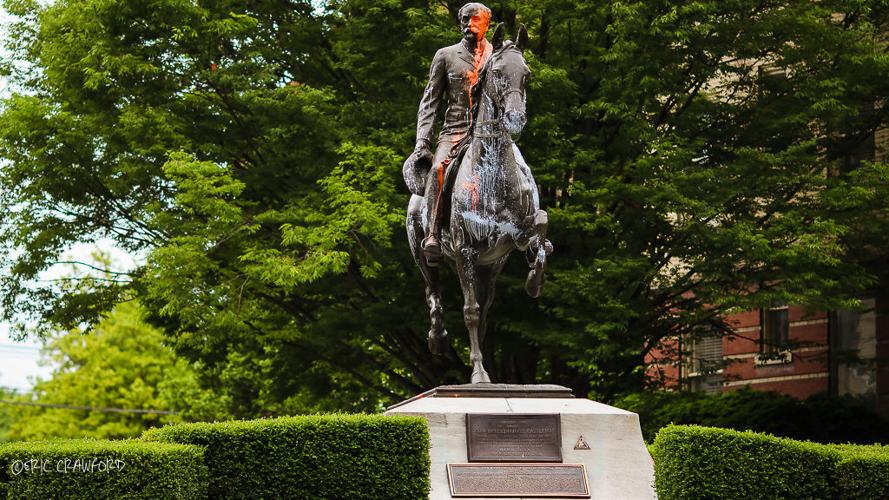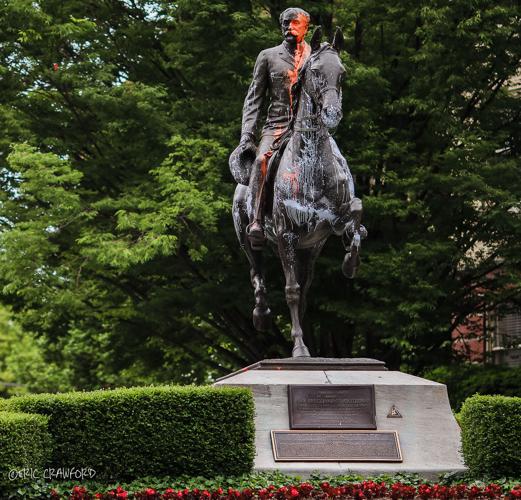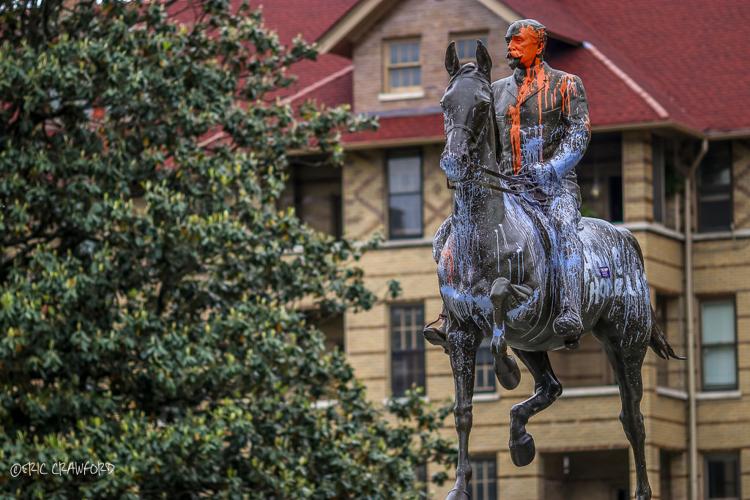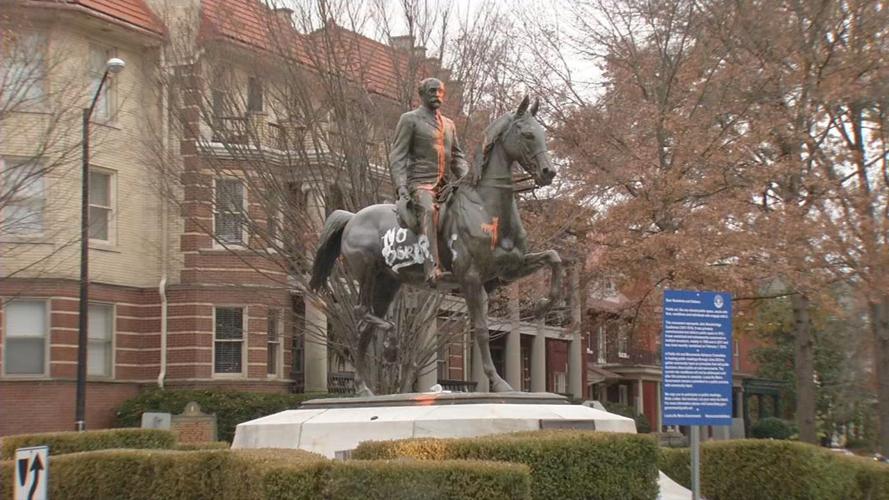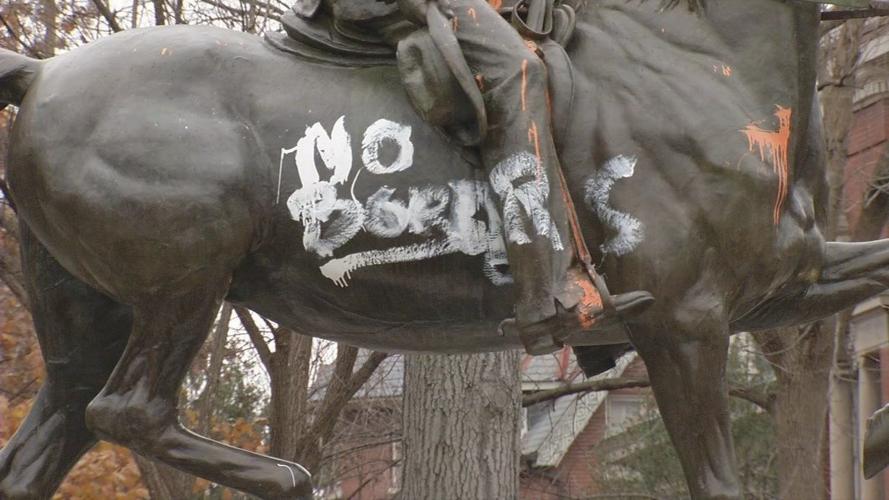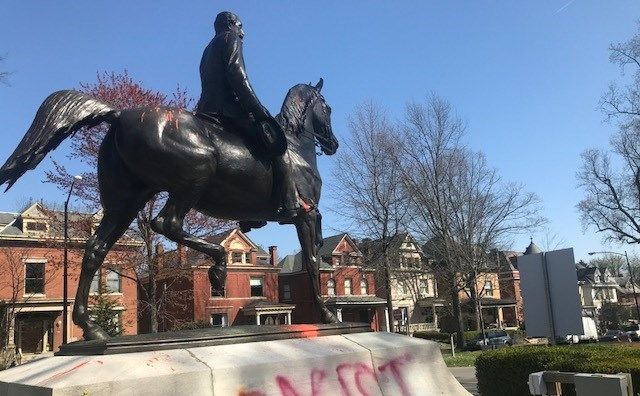LOUISVILLE, Ky. (WDRB) -- The John B. Castleman monument was removed from Cherokee Triangle without warning early Monday morning.
The statue has been a fixture in the neighborhood for more than 100 years.
The removal comes after nine straight days of protests in Louisville, following the death of Breonna Taylor during a drug raid in March.
Crews began removing the statue around 6 a.m. on June 8. It was loaded onto a truck, and will be taken to a storage unit for cleaning. While the city has been in talks to relocate the statue to Cave Hill Cemetery where Castleman is buried, no agreement has been finalized. The plinth below the statue will be moved at a later date.
Although the statue is gone, the legal battle is far from over. Although a judge ruled Friday the city has the right to remove the statue, friends of Louisville Public Art -- a group that has been against the removal -- has appealed the decision.
Attorney Stephen Porter, who represents the group, says he will file a motion to overturn the removal decision this week. "The Circuit Court failed to consider the major points of law contained in our original complaint and we will ask the Court to reconsider," Porter said in a written statement.
Some residents were upset that the statue removed without warning.
"It's a real disappointment to me personally and I think it's a real loss for the neighborhood," said Nick Morris, who lives nearby.
"I think you have to look at the full context of his life and you can certainly argue it either way, but it is history. I think it was Wendell Berry who said "we can't improve history by erasing the facts.'"
Others who live in Cherokee Triangle, like Natasha Alexiouk, seemed to agree with the decision.
"When people say 'that it's history, are we erasing history?' I think contextualizing history and putting it in the appropriate place but not having it towering over the entire neighborhood.
"I have to admit I had to do some research on the man, and given all the facts I know about him now, I don't think he deserves to be out here," Alexiouk said.
Louisville Mayor Greg Fischer said during a news conference Monday that the city wanted to remove the statue "in the very safest way possible" after getting advice from attorneys.
"So we removed it this morning in a nice, quiet and peaceful way and look forward to seeing the triangle without Castleman now," he said.
Fischer says moving the statue from its current public location sends an important message amid racial unrest and protests around the world.
"The events of the past weeks have shown clearly that's not enough to just face our history," he said. "We've got to address its impact in our present. To many people are suffering today because the promises of justice and equality enshrined in our Constitution are unfulfilled by a society that devalues African-American lives and denies African Americans justice, opportunity and equity. That's got to change. People want at deserve action. We need a transformation."
The John B Castleman statue is officially gone from Cherokee Triangle, but the legal battle isn’t over yet. An attorney plans to file a motion to overturn the decision that removed it. @WDRBNews pic.twitter.com/ASFti2awAw
— Lexie Ratterman (@LRatterman_WDRB) June 8, 2020
The statue has proven controversial over the past few years, and has been vandalized several times. Castleman is closely associated with the Confederacy, slavery and segregation. Historians previously argued that the statue should not be removed because of the historic significance of the monument.
Fischer announced plans to move the statue, along with a statue of George Dennison Prentice, in August 2018, after a report was issued by the Public Art and Movements Advisory Committee.
Fischer rejected the idea that moving the statues was an effort to erase history, saying, "Moving these statues allows us to examine our history in a new contact that more accurate reflects the reality of the day, a time when the moral deprivation of slavery is clear."
The moving of the Castleman statue in 2018, required a Certificate of Appropriateness due to its location near the Cherokee Triangle Preservation District. The Cherokee Triangle Architectural Review Committee denied the certificate in January 2019.
The Louisville Landmarks Commission gave the city the green light to remove the statue in May 2019. That ruling was later appealed.
"Although John B. Castleman made civic contributions to Louisville, he also fought to keep men, women and children bonded in the chains of slavery," Fischer said after the initial ruling on May 8, 2019. "We cannot and should not erase our history, but it is important that art and monuments displayed on public property reflect our values today as a welcoming city."
IMAGES| John B. Castleman statue removed after long debate
Vandalized statue of John B. Castleman in Cherokee Triangle in 2019. (WDRB Image)
A decision has not been made on how the site will be used after the statue is moved. Metro Public Art Administrator, Sarah Lindgren, said any new proposal for artwork or monuments would be reviewed through the city's public art guidelines.
Related Stories:
- Louisville's Landmarks Commission gives city green light to remove Castleman statue
- Vandals deface Castleman statue following approval to remove it from Cherokee Triangle
- New group plans to appeal ruling on Castleman statue, protect public art
- Panel of historians discusses Castleman's legacy, says his statue shouldn't be moved
- Group files lawsuit to stop removal of Castleman statue from Cherokee Triangle
- Group fighting removal of Castleman statue launches billboard campaign
Copyright 2020 WDRB Media. All Rights Reserved.
